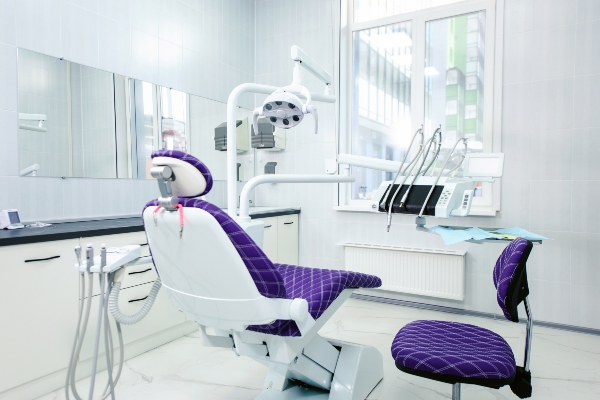How to Tell That Your Dentures Need an Upgrade
 Dentures are most often usually worn throughout the day and only taken out at night to be cleaned. In order to remain comfortable for this many hours, and to enable the wearer to chew most foods, dentures are made to very precisely fit the contours of your alveolar ridges i.e. the bony ridges that surround and anchor the teeth. They are made from the impressions that we take. Not only do the impressions have to be made perfectly, but when the dentures are being created, there is absolutely no room for error. Even the slightest micro-millimeter of difference in the measurements can make the difference between dentures that are easy to wear and remain comfortable for years, or ones that never fit quite right and cause numerous problems.
Dentures are most often usually worn throughout the day and only taken out at night to be cleaned. In order to remain comfortable for this many hours, and to enable the wearer to chew most foods, dentures are made to very precisely fit the contours of your alveolar ridges i.e. the bony ridges that surround and anchor the teeth. They are made from the impressions that we take. Not only do the impressions have to be made perfectly, but when the dentures are being created, there is absolutely no room for error. Even the slightest micro-millimeter of difference in the measurements can make the difference between dentures that are easy to wear and remain comfortable for years, or ones that never fit quite right and cause numerous problems.
Unfortunately, regardless of how well fitting your dentures were in the beginning, there comes a day when the realization begins to dawn that all is not as it once was. Sometimes your dentures may begin to slip or pop loose, most often when you chew. Even worse, you find that this happens when you speak, cough or sneeze.
You may find that foods that your were once able to eat without any difficulty whatsoever are not quite as easy to chew. In other words, you are still masticating that piece of steak when everyone else is ordering dessert. One other symptom of dentures that are not fitting as well as they once did is when biting down on something causes your gums to hurt. Or you may have noticed that your gums are tender and perhaps getting red, swollen, or inflamed.
Although it is true that dentures, like any other material, tend to wear down in time, the most usual reason for any or all of the above symptoms, is not that the dentures have changed shape, but that your jawbone has. And no, this is no cause for concern. A natural consequence of aging is that your bones begin to shrink and change shape. While this may not cause your jeans to fit any differently, when it comes to an oral appliance like dentures, which have to exactly conform to the shape of your jaw, it becomes a very significant problem. In fact, we recommend that dentures are inspected at least once a year and replaced every five to ten years.
Why?
Numerous reasons, not the least of which is the fact that in order to eat, you have to be able to chew. And if you are not able to chew a variety of foods with ease, the chances of vitamin and mineral deficiencies increases, which can lead to a compromised immune system. Also, dentures have a tight seal that disallows food from getting in behind them. If they are loose, food will collect behind the denture substantially increasing the risk of bacterial infection. All of which hasn't even begun to address that fact that sore or bleeding gums are not something one can, or should, live with.
Come in and see us as soon as you notice any of these signs. Either we will be able to fix your current dentures or will upgrade you to a better fitting pair that should last you many more years to come.
Recent Posts
Dentures are durable and effective teeth replacements. However, even the most reliable dental devices may start to fit differently over time. This may be caused by changes in the jaw or something as simple as everyday wear and tear. Fortunately, we can reline dentures so that they feel like new again.Relining is a process in…
Dentures are one of the leading tooth replacement options. The process of getting them from consultation to final fitting may look a little different for everyone, depending on factors like the type of denture the patient chooses and any preparation needed. If you are considering dentures, this process overview will give you a general idea…
Dentures are viable tooth replacement options that restore the look and function of your smile. Whether you are missing one tooth or all of them, these restoratives can serve as long-lasting alternatives. With a variety of dentures options, patients can determine which option will best meet their needs through a consultation appointment. Here is some…
Considering dentures? Read on to learn more. For individuals dealing with tooth loss, dentures might offer a life-changing experience, both for their dental function and aesthetics. Millions of adults depend on dentures for their dental needs. According to a National Nutrition and Health Examination Survey, about 57% of Americans aged 65 to 74 and 51%…


